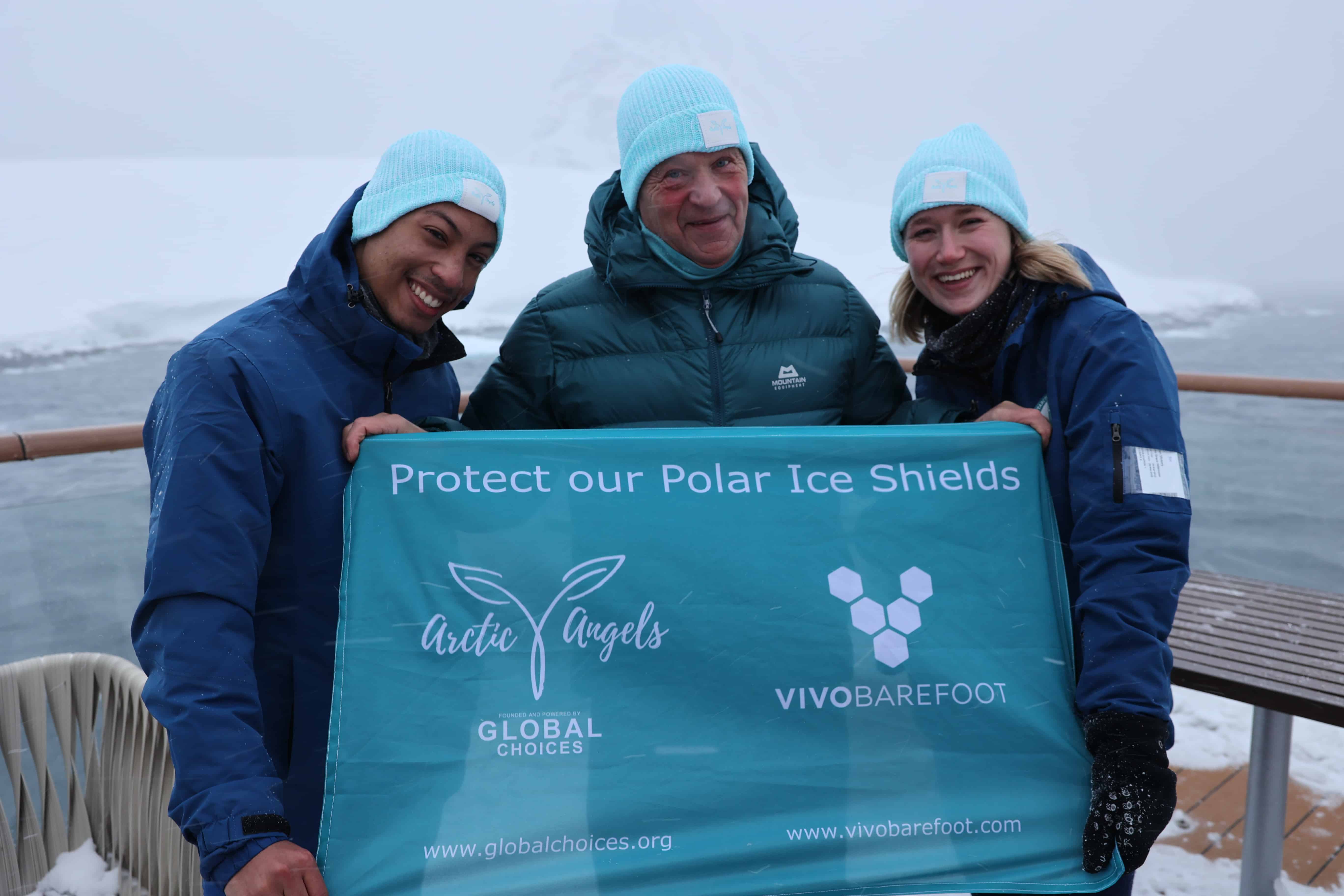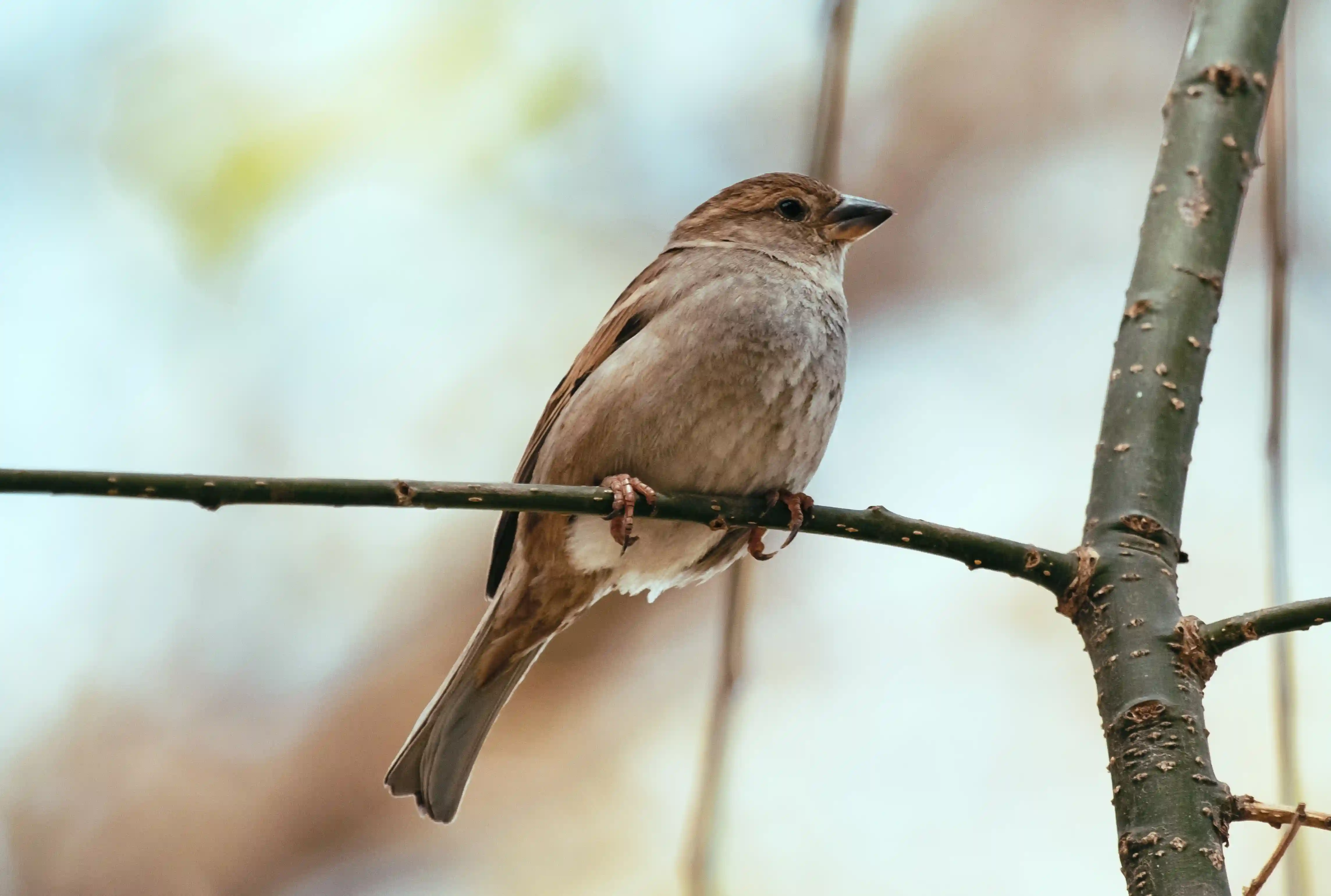Lessons from Antarctica: the frozen continent on the frontline of the climate crisis
Emma Wilkinson

“Now you know you’re alive!” said our expedition guide as the wild Antarctic weather turned and we were soaked by each wave.
Last month, I was incredibly fortunate to join the 2041 ClimateForce expedition, led by polar explorer Robert Swan OBE, and journey to the Antarctic – Earth’s last great wilderness. Representing Global Choices’ youth-led action network Arctic Angels, and supported by the natural lifestyle brand Vivobarefoot, I participated alongside climate justice activist Zanagee Artis. The expedition team included over 160 community leaders, industry game-changers, activists and scientists from 35 nations, all united by a common goal: to preserve Antarctica. We convened in the world’s southernmost city, Ushuaia in Argentina, before spending a week exploring the western Antarctic Peninsula.
Our expedition was the journey of a lifetime, and an experience that has changed my understanding of what it means to be alive on this wondrous planet.
 On our way to shore, in smaller zodiac boats, we listened to the rhythm of Antarctica. A few days in, having so far failed to be in the right place at the right time, I was part of the group that found sleeping whales as they slowly glided along. Hearing the whales breathe, feeling the current beneath me, I was mesmerised. In that moment there was nowhere else to be. The leadership team encouraged us to not bring the weight of the world with us south - to be present. And with the whales, I was.
When on shore we observed the wildlife, we hiked, and we were still. Standing on the continent of Antarctica was surreal. It was humbling to be surrounded by the vast ice, immersed in a landscape so unlike anything I had experienced.
On our way to shore, in smaller zodiac boats, we listened to the rhythm of Antarctica. A few days in, having so far failed to be in the right place at the right time, I was part of the group that found sleeping whales as they slowly glided along. Hearing the whales breathe, feeling the current beneath me, I was mesmerised. In that moment there was nowhere else to be. The leadership team encouraged us to not bring the weight of the world with us south - to be present. And with the whales, I was.
When on shore we observed the wildlife, we hiked, and we were still. Standing on the continent of Antarctica was surreal. It was humbling to be surrounded by the vast ice, immersed in a landscape so unlike anything I had experienced.

The rhythm of Antarctica
After heading across the Drake Passage, the roughest seas in the world, we arrived in the harsh Antarctic region, home to whales, penguins, and other fascinating wildlife. We were entering their environment and our activities depended entirely on the changeable, sometimes erratic, weather conditions. Our days in Antarctica were split between living on board the Ocean Victory ship and exploring the Southern Ocean and continent. On the ship, we participated in climate solution workshops, heard talks from the participants about their initiatives at home, shared meals together, and spent time outside on deck. On our first evening in Antarctica, I raced to the deck when I saw pink light shining in. A sunset I will never forget welcomed us. On our way to shore, in smaller zodiac boats, we listened to the rhythm of Antarctica. A few days in, having so far failed to be in the right place at the right time, I was part of the group that found sleeping whales as they slowly glided along. Hearing the whales breathe, feeling the current beneath me, I was mesmerised. In that moment there was nowhere else to be. The leadership team encouraged us to not bring the weight of the world with us south - to be present. And with the whales, I was.
When on shore we observed the wildlife, we hiked, and we were still. Standing on the continent of Antarctica was surreal. It was humbling to be surrounded by the vast ice, immersed in a landscape so unlike anything I had experienced.
On our way to shore, in smaller zodiac boats, we listened to the rhythm of Antarctica. A few days in, having so far failed to be in the right place at the right time, I was part of the group that found sleeping whales as they slowly glided along. Hearing the whales breathe, feeling the current beneath me, I was mesmerised. In that moment there was nowhere else to be. The leadership team encouraged us to not bring the weight of the world with us south - to be present. And with the whales, I was.
When on shore we observed the wildlife, we hiked, and we were still. Standing on the continent of Antarctica was surreal. It was humbling to be surrounded by the vast ice, immersed in a landscape so unlike anything I had experienced.



